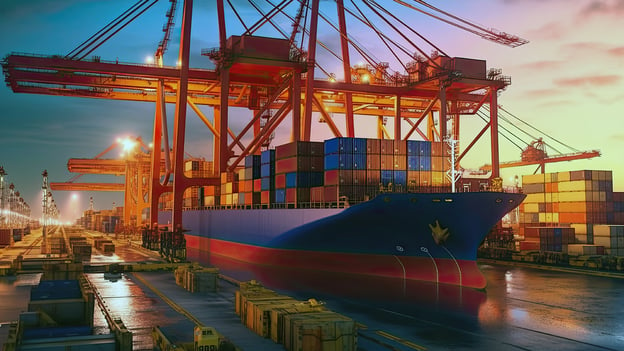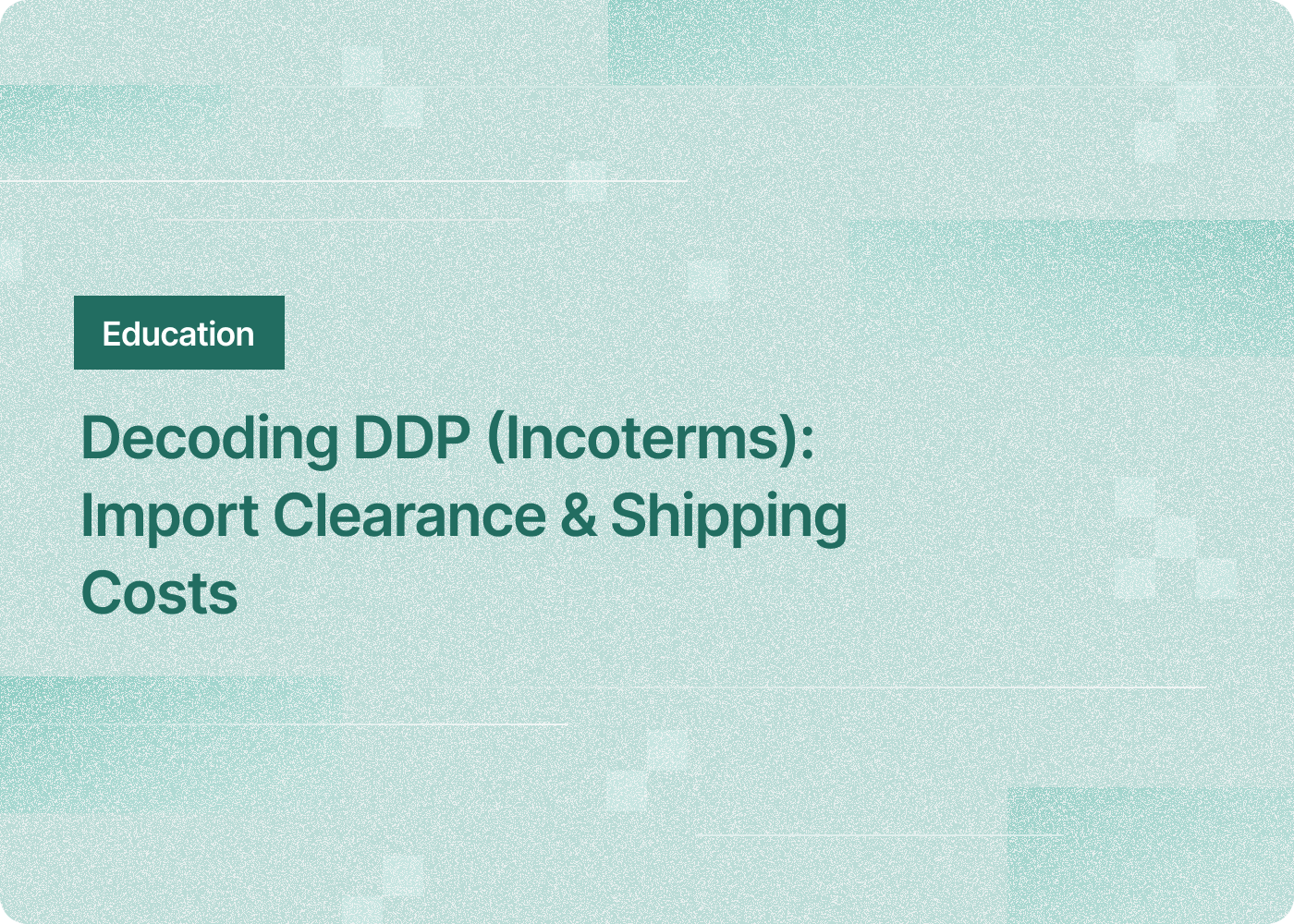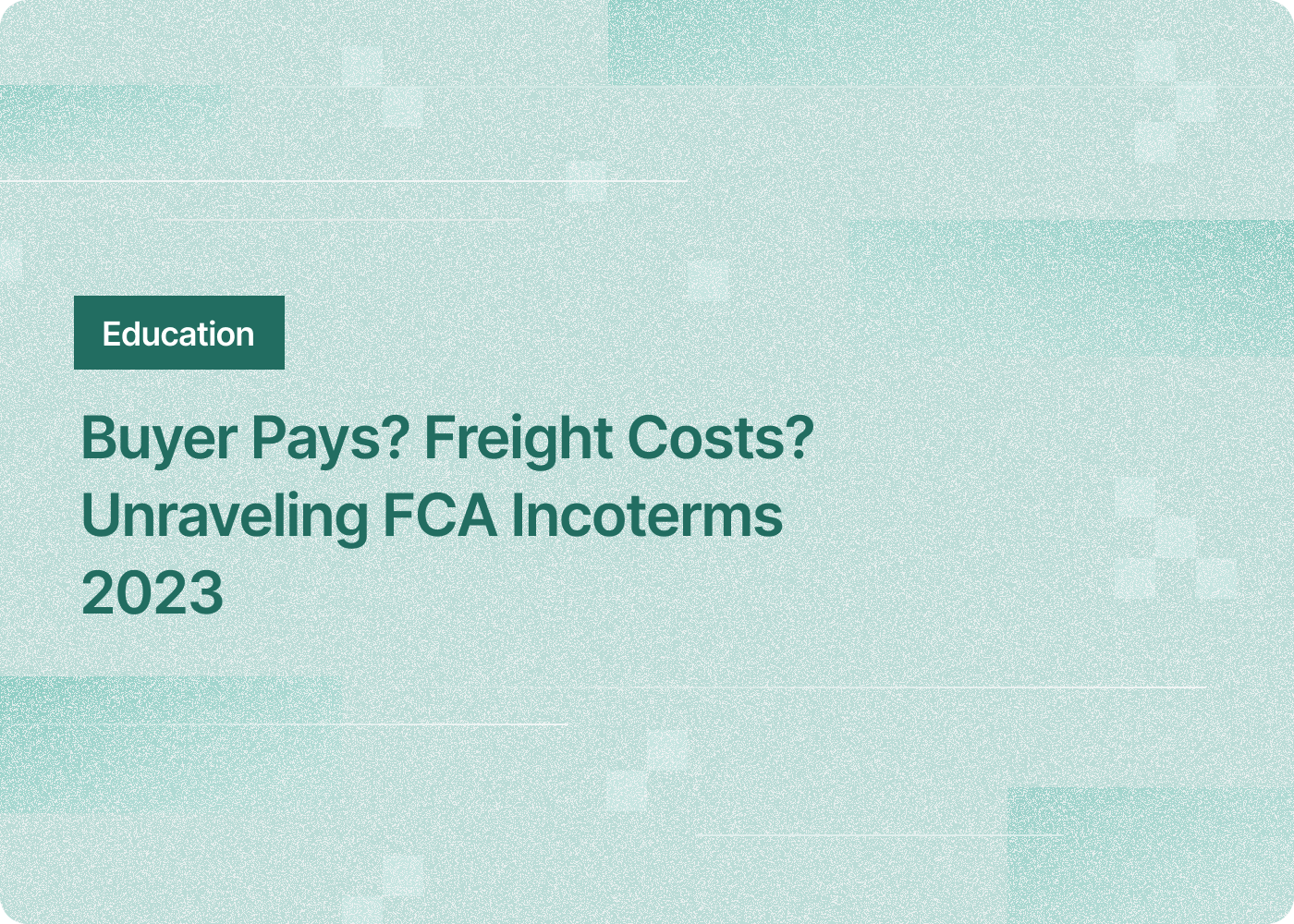

If you’ve ever been involved in international shipping, you’ve likely come across a labyrinth of terms that seem confusing at first glance. From “Incoterms” to abbreviations like DDU and DDP, it’s crucial to understand what these mean for your bottom line and shipping process. In particular, let’s delve into DDU—Delivered Duty Unpaid—an Incoterm that signifies the seller’s and buyer’s obligations concerning costs, risks, and responsibilities.
What is DDU and Why is it Crucial in International Shipping?
DDU, short for Delivered Duty Unpaid, indicates that the seller has fulfilled their obligation once the goods are made available at an agreed-upon location in the destination country. However, the buyer pays for the import clearance and all other costs incurred to bring the shipment from the final destination to their own facilities. Understanding DDU is crucial for any international customer because it impacts not just the shipping procedures but also the import duties, shipping charges, and risks involved.
Brief Overview of Incoterms and Their Significance
Incoterms, or International Commercial Terms, are a series of pre-defined terms published by the International Chamber of Commerce (ICC). They provide a common ground for sellers and buyers, essentially acting as the language of international trade. By understanding Incoterms like DDU, you can better navigate customs procedures, duties and taxes, and additional costs, thereby saving money and ensuring a smoother delivery process to the destination port.
By the end of this comprehensive guide, you’ll understand the intricacies of DDU, from import clearance procedures to the responsibilities of the parties involved, ensuring you make informed decisions in your international shipping endeavors.
A Deep Dive into DDU: Delivered Duty Unpaid

Navigating the landscape of international shipping can be like walking through a maze. But when you understand terms like DDU, or “Delivered Duty Unpaid,” the path becomes a lot clearer.
What Does “Delivered Duty Unpaid” Mean?
In the context of international shipping, DDU stands for Delivered Duty Unpaid, a term that specifically outlines the obligations of the buyer and seller. When a shipment is sent DDU, the seller is responsible for all the risks and transportation costs up until the goods reach an agreed-upon location in the destination country. However, unlike Delivered Duty Paid (DDP), under DDU terms, the buyer takes on the responsibility of handling import clearance, customs duties, and any additional costs from that point forward. Essentially, DDU signifies that the goods are delivered with duty unpaid, meaning that the buyer pays all import duties and handles all customs formalities once the shipment arrives at the specified location.
Responsibilities and Costs Covered Under DDU
Let’s break down the specific responsibilities and costs under DDU:
Seller’s Responsibility:
Handling and packing the goods
Managing export formalities
Bearing all risks and transportation costs until the goods reach the agreed-upon destination
Providing the necessary export documentation
Buyer’s Responsibility:
Taking legal possession of the goods at the agreed-upon location
Import clearance procedures
Payment of customs duties, import tariffs, and other charges
Coordinating further transportation to own facilities or a storage facility
Understanding these responsibilities is crucial because they directly impact the shipping charges, customs charges, and delivery costs that are incurred. DDU, therefore, offers a way for both parties to understand their obligations clearly, making it easier to avoid surprise duties and additional costs.
By getting familiar with DDU, you are better prepared to manage the costs and responsibilities tied to international shipping, whether you’re the seller shipping internationally or an international customer. This understanding, in turn, allows for better planning and potentially fewer risks involved in the import process.
Incoterms: DDU vs DDP (Delivered Duty Paid)

When it comes to international shipping, two terms that often cause confusion are DDU (Delivered Duty Unpaid) and DDP (Delivered Duty Paid). Although they may seem similar, the differences are significant and can have a considerable impact on your shipping process, customs fees, and overall costs incurred.
Explanation of DDP and Its Contrast with DDU
DDP, or Delivered Duty Paid, is almost the opposite of DDU in terms of responsibilities and costs. Under DDP terms, the seller bears all the risks, transportation costs, and customs duties until the goods are received by the buyer at the main delivery location. The seller handles all export and import formalities, effectively making the process seamless for the buyer. Unlike DDU, where the buyer takes possession at an agreed-upon destination and handles the import clearance and duties, in DDP, the seller manages these aspects.
The Pros and Cons of DDU and DDP
Here’s a rundown of the advantages and disadvantages of both terms:
Pros of DDU:
Flexibility for the Buyer: Buyers have more control over import clearance procedures and payment of import duties.
Less Complexity for the Seller: The seller is not involved in the complex process of customs clearance in a foreign country.
Cons of DDU:
Higher Risks for the Buyer: Since the buyer is responsible for import duties and customs formalities, there’s a risk of unexpected costs like surprise duties.
Requires In-Depth Knowledge: Both parties need to understand international commerce terms to avoid misunderstandings.
Pros of DDP:
Convenience for the Buyer: The buyer essentially receives a door-to-door service with minimal involvement in shipping procedures and customs.
Fixed Costs: Since the seller pays all costs, the buyer knows upfront the total cost of receiving the goods.
Cons of DDP:
Costly for the Seller: The seller needs to calculate all potential costs, which can be challenging and often leads to higher pricing.
Limited Control for the Buyer: Since the seller manages all aspects, the buyer has less influence over the shipping methods and timing.
Understanding the contrast between DDU and DDP is crucial for making informed decisions that align with your business model and shipping needs.
The Costs and Fees: Delivery Duty Unpaid vs Delivery Duty Paid

When shipping goods internationally, it’s vital to have a clear understanding of the associated costs, especially when dealing with terms like DDU (Delivery Duty Unpaid) and DDP (Delivered Duty Paid). These costs can greatly influence your choice between DDU and DDP.
Breakdown of Costs Under Both Terms
Under DDU, or Delivery Duty Unpaid, the following costs are typically involved:
Transportation Costs: Paid by the seller up to the agreed-upon destination in the foreign country.
Customs Duties: Buyer handles all customs duties, taxes, and additional fees.
Import Clearance: The buyer pays for import clearance procedures.
Conversely, DDP, or Delivery Duty Paid, involves:
Transportation Costs: Covered entirely by the seller, including shipping to the main delivery location.
Duties and Taxes: All customs duties and import tariffs are paid by the seller.
Customs Clearance: Managed and financed by the seller, thereby reducing the buyer’s obligations.
How to Decide Which Term is Most Economical for You
When choosing between DDU and DDP, consider your familiarity with the import process in the destination country, as well as your capacity to handle customs formalities.
If you’re an experienced international customer and have a deep understanding of the customs procedures and import tariffs in the destination country, DDU may be more economical for you. This approach offers more control and potentially lower costs, although it does expose you to risks such as surprise duties.
On the other hand, if you prefer a more hands-off approach, DDP allows for more predictable costs but often comes at a premium, as the seller bears more responsibilities and risks.
Your choice ultimately depends on your business model, the resources you have for managing shipping procedures, and your appetite for risk in international shipping.
Handling Customs: From Import Clearance Procedures to Duties and Taxes

When it comes to international shipping, one of the most daunting aspects for businesses is the realm of customs. From official authorization requirements to unexpected fees, navigating this landscape is not for the faint of heart. Let’s explore how customs handling varies between DDU (Delivery Duty Unpaid) and DDP (Delivered Duty Paid).
How Customs Procedures Vary Under DDU and DDP
Under DDU, the onus of navigating through import clearance procedures lies with the buyer. After the shipment arrives at the destination port or an agreed-upon location, the buyer must handle the customs clearance, which includes paperwork, import duties, and any additional costs.
Conversely, under DDP, the seller takes on the burden of managing all customs formalities. This includes securing official authorization, paying import duties, and ensuring all customs charges are covered. The buyer’s role is comparatively minimal, often limited to taking legal possession of the goods at the final destination.
Surprise Duties and Risks Involved in the Shipping Process
Whether you choose DDU or DDP, it’s crucial to be aware of the potential for surprise duties or additional costs. Under DDU, the buyer is more susceptible to these risks since they are responsible for customs duties and import tariffs. Failure to accurately estimate these can result in unexpected expenses that affect the overall business model.
On the DDP end, sellers may pass on the costs incurred in customs clearance to the buyer, albeit wrapped into the overall price. However, because the seller manages customs procedures, the risk of encountering surprise duties is lower.
Understanding the landscape of customs is essential for making informed choices in your international shipping activities, ensuring that both parties fulfill their respective obligations without the burden of unforeseen costs.
Navigating DDU Logistics: From Seller’s Obligations to Destination Country
Shipping internationally under DDU (Delivered Duty Unpaid) terms involves a variety of logistics and planning considerations. The seller’s obligations, shipping methods, and even the destination country’s regulations play critical roles in this context. Understanding these aspects can not only save money but also eliminate potential roadblocks in your shipping process.
Shipping Methods, Seller Obligations, and the Logistics of DDU
Under DDU, the seller is tasked with making the goods available at an agreed-upon destination in the foreign country. This involves:
Shipping Methods: Whether it’s by sea, air, or land, the seller selects the shipping methods and bears all associated transportation costs until the shipment reaches the agreed-upon location.
Seller’s Obligations: These include handling export formalities, obtaining the necessary official authorization, and providing all export documentation. Essentially, the seller must coordinate arrangements to deliver the goods safely and efficiently.
Logistics: Managing storage facilities, tracking shipments, and ensuring the goods are delivered alongside any necessary certifications fall under the seller’s purview.
Important Considerations When Shipping to the Destination Country
When shipping to the destination country under DDU terms, consider:
Customs Regulations: The buyer must be aware of the destination country’s customs regulations, as they’ll be responsible for import clearance and customs fees.
Risks Involved: DDU opens up potential risks like import tariffs, additional costs, or delays in customs clearance. Both parties need to understand these risks and should be prepared for any contingencies.
Payment: Typically, the buyer pays for all costs from the point the goods are made available. Ensure you understand your obligations as a buyer to avoid complications.
By closely examining these considerations, you can navigate the complex landscape of DDU logistics, thereby making informed decisions that align with your international shipping needs.
Case Study: DDU Shipping from China
Navigating international shipping can be intricate, but it becomes even more so when the goods are coming from a manufacturing powerhouse like China. Due to its significant role in global trade, understanding the specifics of DDU shipping from China is crucial for any international customer or business.
Typical Practices, Import Duties, and Potential Complications
In a DDU shipping scenario from China, several practices are standardized:
Import Clearance: As the buyer, you’ll be responsible for all import clearance procedures. Import duties and taxes customs formalities are often more complex, given China’s extensive list of export formalities and regulations.
Customs Duty: Depending on the destination country, you might find that customs duties from China can be quite substantial, which could impact the overall costs incurred.
Additional Costs: Complications can arise in the form of unexpected customs charges or surprise duties, especially if there’s a misunderstanding of the regulations in the destination country.
Shipping Procedures: DDU shipments from China often involve multiple shipping methods. Whether it’s air freight or sea cargo, understanding the shipping process is critical to avoiding delays and additional costs.
This case study highlights the need for buyers to be well-informed about their responsibilities, especially when dealing with DDU shipments from China. Familiarity with import tariffs, customs procedures, and the specific import process of the destination country can save money and mitigate risks involved.
The Future of DDU and International Shipping
As we wrap up this comprehensive guide on DDU (Delivered Duty Unpaid) and international shipping, it’s essential to recap the key points. DDU is a significant incoterm in international commerce, specifying that the seller delivers goods to an agreed-upon location, but the buyer is responsible for import duties and customs procedures. This contrasts sharply with DDP (Delivered Duty Paid), where the seller bears most of the responsibilities and costs, including customs fees.
In terms of costs and logistics, understanding the intricacies of DDU can offer more control and potentially lower costs for experienced buyers. However, it comes with its set of challenges, such as navigating complex customs regulations and potential surprise duties.
As the world of international shipping evolves, so too will these commercial terms. The globalization of markets and advances in shipping technology could make DDU and other Incoterms more flexible and user-friendly, further democratizing international commerce for businesses of all sizes.


